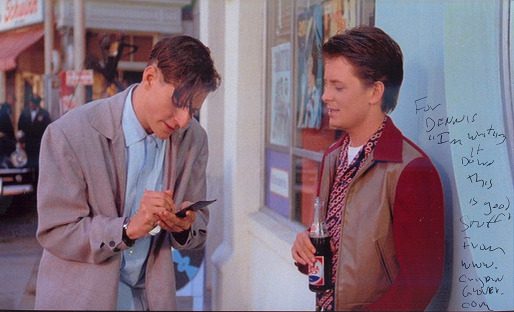Vendors are essential. They provide the food. The coffee! The video content. And many of the things that make our events truly innovative and original.
But how can organizers pick those perfect vendors that make their event so special? Also, what can they do to make negotiating with vendors a breeze? Answer – it’s all about finding people that are excited to collaborate on your amazing event. To get you started, here’s our step-by-step guide to picking the perfect vendors.

Write down your specific vendor needs.
Start by writing down your specific vendor needs for the event and marketing process. This includes event technology, photo, video, food, drinks, security, design, creative assets, or anything else you might need to outsource.
Try to be specific as possible about what you want your vendors to accomplish. What kind of photo and video content are you looking for? Will your vendors bring equipment or supplies? What sort of social media campaign do you need? You should have a clear picture in your head of what the product should look like, whatever it is.
If you’re not sure how to describe what you want, look for real-life examples to point to. Explore Instagram, Facebook, etc. for photos/videos to send to vendors so that there’s no confusion about the final product.
This is also when you can start to hone your budget. Determine how much you can pay vendors in total and how much is reasonable for each vendor. A good rule is that vendors who will play a bigger role should take up a bigger part of the budget.

Compile your vendor list.
Make a list of all potential vendors. This is not the time to be too critical in your search, this is purely about finding as many vendors as possible that you could reach out to.
Start by talking to other event planners for recs. Ask which vendors they enjoyed working with or any new vendors they’ve heard about. You can also reach out to vendors you know, and ask about some of the other vendors they enjoy working with. Vendors are at events all the time, they know who the new kids on the block are, and who’s innovating.
Google is obviously an excellent resource as well. Just make sure to search past page 1. Sometimes the best links aren’t sponsored and are on pages 2 and 3. Trust us.
Search social media to see which vendors were at recent events. Check out Instagrams of local events. See which vendors are tagged in the photos. It may feel a bit like detective work, but it also may help you find just what you are looking for.
ProTip: The list you create at this stage can double as your backup vendor list, you know, just in case.

Do your homework.
Take time to do a deep dive on all of your possible vendors. Some businesses you will find are not a great fit right away, others will take a bit more work to vet.
Start with online reviews – Yelp, Google businesses, Better Business Bureau, as well as any event planner message boards or quarterlies. We’ll be the first to say that 1 or 2 bad yelp reviews aren’t a dealbreaker. But 20 bad reviews? That should give you pause. The same goes for 20 glowing 5-star reviews posted on the same day. Be smart out there!
Look at some of the events the vendors worked on recently and reach out to the planners involved. Ask how the process went and what the experience was like.
Explore the vendor’s website and social media presence. A website is generally the first impression, and it should have a professional look that complements your event. Their social media presence should also be something that fits well with your event’s brand.

Rehearse your negotiations.
You want to go into negotiations with a clear idea of what you want and what you are willing to offer for the vendor’s services.
Consider what your event offers the vendor, outside of money. What kind of visibility are you offering? What kind of professional connections will the vendor be able to make? Can their branding and logo appear prominently on the flyer or venue? Will they have visibility on your social media and post-event marketing?
Have a solid pitch ready for why the event is a good fit for the vendor. Collaboration is key to any business relationship and you want vendors that will contribute to the event energy you are trying to create.
Also, when it comes to price, you need to be able to walk away if something is going to be way over budget. But with that said, if a vendor is the perfect fit, and will benefit both businesses, then there should be room to negotiate a price that works for all parties.

Create a connection.
Reach out and talk to your vendors. The sooner you can talk to someone on the phone and get back and forth communication going, the sooner you’ll know if there is a business relationship there.
Check out their response time as well. Does it work with your schedule? Do you feel that they are able to get on the phone when you need to? Keep in mind that this needs to be a working relationship that lasts for weeks, months, or even years. You want to feel that all parties will be able to tackle any of the issues that are bound to pop up when planning.
There should also be a shared interest in creating your unique event. You want your event to stand out and be one of a kind. This requires everyone involved to be on board with pushing the envelope and collaborating to create something new. Luckily, most vendors love to show that they are always innovating, so this shouldn’t be too hard.

Trust your gut.
Your gut is often the best judge of whether a vendor is a good fit. If something feels off, it’s best to either address the issue early or go a different direction with the vendor. You have to put your event first. No matter how highly a vendor comes recommended.
It’s also important to read any contracts thoroughly, or send them to a legal expert, if possible.
You don’t want to be on the hook for any extra fees or additional charges that seem unfair. For example: You’ll want to have a recourse to get your deposit back if the vendors are unable to work the event. Or if the contract feels non-committal, you’ll want to have that rewritten.
Bottom line, if something seems like it’s not going to be good for your event, it’s best to address it or find a different vendor as soon as you can.
It’s all about collaboration.
Finding the right vendors is all about finding businesses that are a joy to work with and want to collaborate on amazing events together.
Making a list of what your vendors need to do will give you an idea of what you are really looking for. Researching each business and prepping your negotiations will make it easier to vet the vendors. And connecting with the vendors over your event shared goals will ensure a collaborative and long-lasting business relationship. In the end, the right vendors are the ones that want to make amazing events together.



